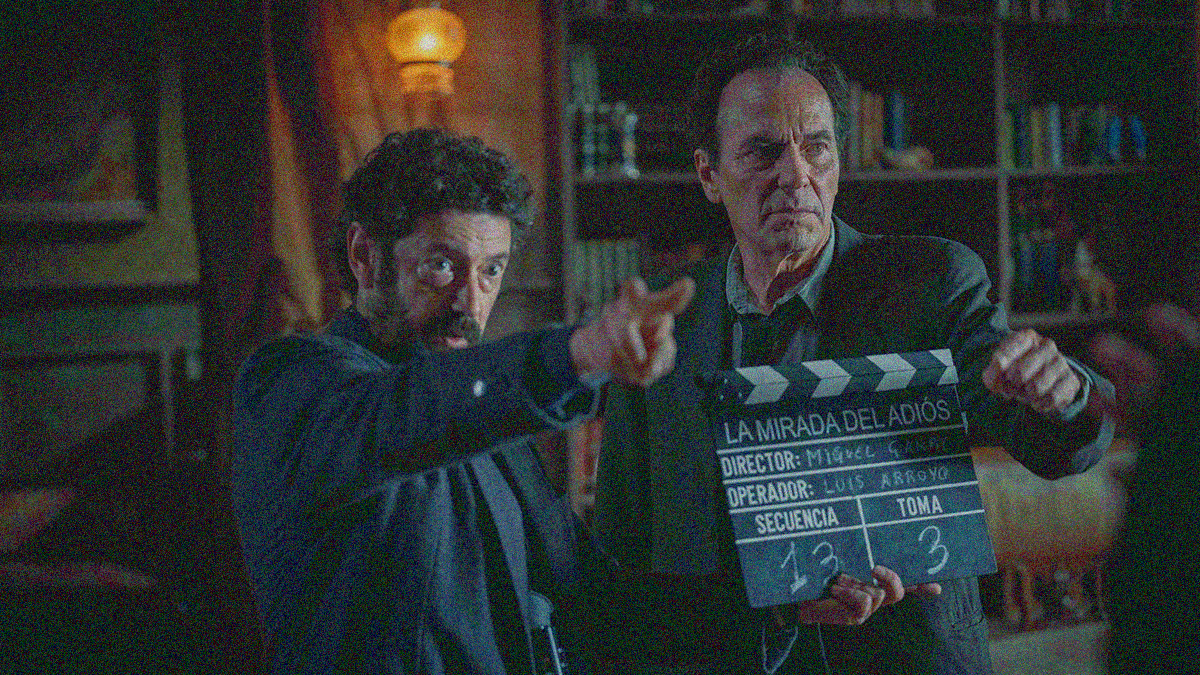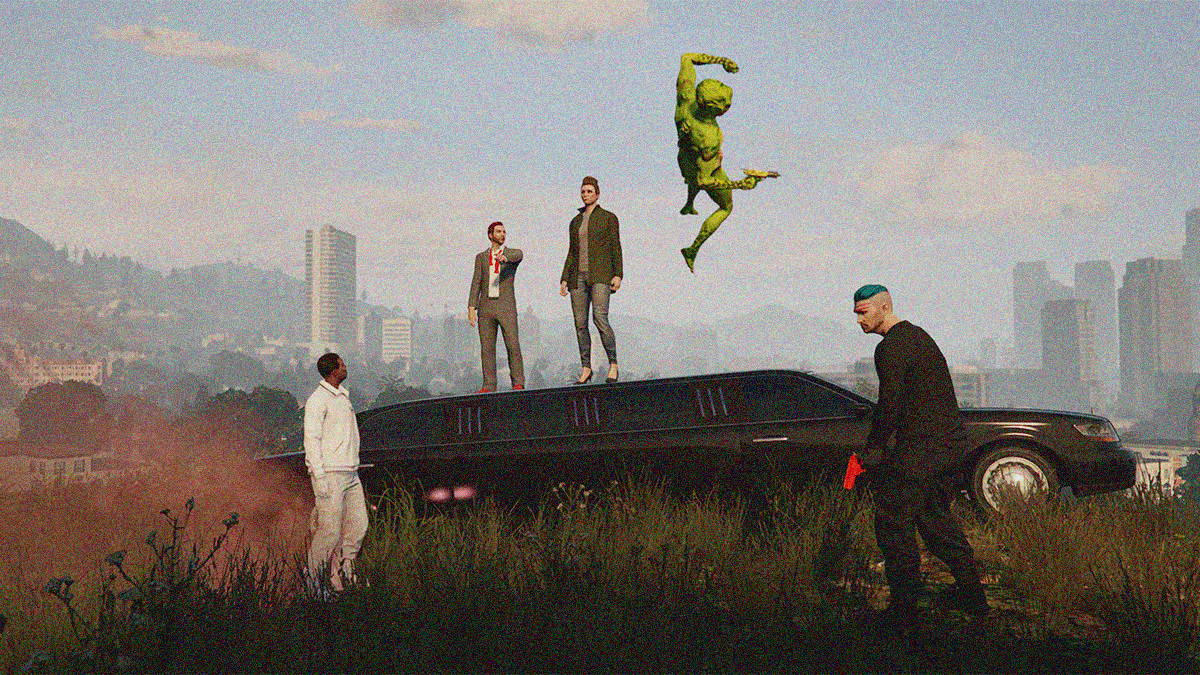I was going to just mention my Top Ten Films of 2024 post here because I neglected to mention it last week, but I can’t not say something about the passing of David Lynch—a true icon of cinema and a bona fide dreamer.
I wouldn’t be writing this newsletter if not for a family friend finding out I had started going to new indie films at Dipson Amherst after graduating high school in 2000. He had one question: Have you watched any David Lynch yet? I never looked back. It was the first time I really saw film as more than just escapist popcorn fantasy.
I don’t think anyone should be surprised by the news considering Lynch recently came out to say he was under permanent house quarantine due to emphysema and his body’s inability to risk having to fight off COVID. We all just hoped it wouldn’t be so quick. So, while today might be “Friday once again!” it’s a little less bright.
He only released one new film since I started writing reviews (Inland Empire hit Buffalo theaters eleven months after my first piece went live), but I revisited Fire Walk With Me in 2017 while showing my partner Twin Peaks for the first time, got to see Blue Velvet (2016) and Lost Highway (2017) on the big screen courtesy of North Park Theatre, and popped Dune in before pressing play on the 2021 version. I’ve made my reviews for them all live again via my website.
Back to 2024: it’s officially (almost) over for me. My OFCS vote was Tuesday, so the below grid shows where I ended up on the main categories. I believe nominations come out today, so I’ll surely have a couple to catch-up on before casting my final ballot.
Either way, I don’t think the Top Ten will be shifting. I wrote about my year of not going to the theater and distilled my favorites down to 150-words each at The Film Stage.
What I Watched:
BLACK BOX DIARIES
(streaming on Paramount+)
More than just waiting to discover the final verdict in the civil trial against Noriyuki Yamaguchi, we're waiting for the moment when Shiori Itô can no longer keep herself separate from the investigation she's led. It's a powerful moment of self-realization because the PTSD triggers can no longer be held at bay once the reality of uncovering the case's truth shifts to the reality that she is the case. You must commend Itô for finding the strength to compartmentalize things and push forward to advocate for herself by treating the "victim" portion of her identity as a client to the "journalist" portion. No one else was willing to take that job for her. It's why only 4% of rapes are reported in Japan. She needed to do it all.
Black Box Diaries isn't therefore "based on the international bestseller Black Box" as the poster describes. Half the film takes place after her book was published. It's instead another piece of the puzzle. Another document of Japan's archaic justice system and Itô's fight to expose it. That's why no one else could tell this story but her. No one else knows the lengths she needed to go to uncover evidence when the police and government were working tirelessly to contain everything in their so-called impenetrable "black box" of secrecy. So, she hired herself as a private investigator to record everything, push boundaries, and ignore the fear that doing so put her at great risk. The only way to save herself was to speak out and the only way to honor her craft was to become the apparatus necessary to be heard.
It's a devastating account that reveals the heroes (Investigator A and other witnesses willing to go on-the-record) and villains (the national press and Prime Minister Abe himself, a "close friend" of the accused) in short order and without ambiguity. To discover that an arrest warrant for Yamaguchi had been issued and quickly rescinded back in 2015, shortly after the crime, screams conspiracy. And then nothing? The police say there wasn't enough evidence, so Itô finds more. Then they say it's still not enough, so she does the unthinkable (this is prior to #MeToo) by coming forward via a press conference without hiding her identity two years later. Itô realized this was no longer just about her. It was about holding the nation accountable and ensuring future victims had a voice.
We see potential surveillance vans parked outside her apartment. We hear the abhorrent messages denigrating and slandering her. There are the long silent stares into the abyss when stress takes hold, the paranoid attempts to search for wiretapping technology where she slept, and the sobering awareness to write a will that stated she wasn't suicidal and that a full investigation should be launched if she was found dead in a manner that seemed self-inflicted. Itô supplies us an unfettered look into what ends up being an eight-year battle—all the highs and lows. Those early days of treating it like a puzzle without an inkling of backing down and the later ones where a confrontation with her assailant could no longer be pushed out of her mind as an abstract future problem.
The juggling act is well composed with a bit of back and forth between 2015 and 2017 to better contextualize everything with the timeline of discovery (Itô has no memory between leaving the restaurant and discovering Yamaguchi on top of her in bed) rather than chronologically. It lets us understand her state of mind since we're watching it through her eyes and ears. What were her emotions in that moment? Where does each new fact lead? The only part that confused me was a tearful testimonial that feels like a suicide note before cutting to the inside of a hospital room without any explanation of what occurred. Did she make an attempt? Did she check-in to ensure she wouldn't? The film simply moves to a scene of Itô walking on the street without any additional insight.
Either way, the moment impacts the overall suspense and drama inherent to Itô's war against the still pervasive patriarchal backbone of Japan as a nation and culture. It drives home that one cannot simply push away the physical and psychological damage done by rape and assume it will disappear. Yes, Itô is able to distract herself long enough to ensure her day in court, but the body's need for grief and acknowledgment will eventually take hold. We watch it do exactly that throughout the film as the tide turns and the story shifts from her reportage to her victimhood. It's why she admits this ordeal still isn't over post-verdict. Because justice is merely one part of survival. Healing is the other.
- 8/10
CLOSE YOUR EYES
(VOD/Digital HD)
The theories are many. Death by accident. Death by suicide. Scandal with an unknown woman. Or, as best friend and director Miguel Garay (Manolo Solo) likes to fantasize, Julio Arenas (Jose Coronado) simply decided to move on and find that place he'd never want to return from. While the latter might seem the most hopeful in the sense that it would mean the famed Spanish actor was still alive somewhere, it's also probably the saddest. Because it means that the life he had wasn't enough. That he would abandon his friends, daughter, and career in search of something they couldn't provide. Yes, it would be romantic on some level because we'd assume never coming back after twenty years meant he found it, but at what cost?
One could say Miguel did the same. After Julio disappeared during production on Garay's second feature, he never directed again. As he explains to television host Marta Soriano (Helena Miquel), the industry neither sought him out for another project after The Farewell Gaze fell apart nor did he attempt to force them. Instead, he stuck to writing, endured his own tragedy, and ultimately put Madrid behind him to retire to the coast and lead a simple life fishing. Was it a place that made it so he'd never want to return to his old self? Perhaps. It's money that drags him back once Marta offers a tidy sum for an interview on her show's latest episode about Julio's unresolved life. Say a few words, provide the rights to the little footage that was shot of that last film, and give a final goodbye to his friend.
Well, Victor Erice's Close Your Eyes is a lot more than just that. The filmmaker's first feature in more than three decades comes with a script (co-written with Michel Gaztambide) that takes its fair share of twists and turns. This is done formally in the sense that the first ten minutes we watch are actually from The Farewell Gaze without us knowing, but also narratively with the first half of the film serving as an excuse for Miguel to revisit his past before the second has him reconciling the fact that maybe the present is all that matters. Because, while in Madrid for Julio, what he gets is for himself: reminiscences with his old cinematographer Max (Mario Pardo), Julio's daughter Ana (Ana Torrent), and an old flame in Lola (Soledad Villamil). While wonderful in the moment, it also begins to feel like the memories of someone else. That's no longer Miguel.
It only makes sense that Julio might not be either. Maybe Miguel was correct as far as his friend walking away, but not about the motive. Because a social worker (María León's Belén) who catches the episode Miguel was interviewed for is pretty sure the man they're calling Julio is the handyman at the retirement home where she works. They call him Gardel after the tango composer/singer because he has no memory of who he is. Could it really be Julio? And what does it mean in context with his disappearance if it is? These are the questions that Miguel and Ana want to know for closure, but what if there's another more important query to ask: Does it matter? Just like Miguel has no desire to go back to being the man he was, perhaps Gardel wouldn't either. Is this person's identity any less meaningful than the one he lost?
Erice sprinkles in many examples of the notion that humans evolve. They change, grow, adapt, and forget. Should Ana want to meet this Gardel if she's already mourned her father? Should she speak with Marta to dredge up a past that she's put behind her in order to move forward? What about Miguel reinventing himself or his friend by the sea adopting a nickname to replace his own? Or Lola moving to California to hit it big only to find herself returning to Buenos Aires to put down roots—is who she is now a product of those choices or is it a life created despite them? Add the idea of cinema and how the person on-screen isn't the same person that people off-screen know and the lines between memory, identity, and image blur together. Nothing lasts forever.
So, we follow Miguel as he journeys through the many stages of his life via brief anecdotes, objects collecting dust in his storage unit, and his own mind working overtime to try and capture lightning in a bottle when it might be well past the moment for such a miracle to matter. If the images of his film and people from that time don't have the power to move him away from his current self, why should finding Julio? Isn't he just another fragment lost to the ether or sitting in a dark corner under boxes? The answer is yes and no. Yes, he is a remnant, but no, because he's also a touchstone. The hope then is that Miguel might be a touchstone for him too. Maybe his presence will shake Gardel awake.
What good would that do, though? It might only cause more pain. So, rather than make this film about "saving" Julio, Erice makes it about Miguel waking up to the magic of his own artistic possibility through him. It's about reconciling past and present, memory and reality. It's about finding answers to help him move on as opposed to dwelling on what might have been. I love that showing Gardel his film isn't about opening his eyes to who he was, but closing them so he might open them anew. This man's fears of the girl he left behind might be real in the sense that he did leave one, but not in the way his new memory believes courtesy of a fiction he doesn't have the ability to shake. Miguel and Ana have already grieved what they lost. Now Gardel can let it go too.
- 8/10
GRAND THEFT HAMLET
(limited release; eventually streaming on MUBI)
It's the third lockdown of the COVID pandemic and out-of-work actors Sam Crane and Mark Oosterveen are trying to remain sane. Live theater has yet to re-open and other options are limited at best. So, all they can do is stay inside and cope—something that's perhaps a little easier for Sam while living with his family (partner Pinny Grylls and their children) than Mark who's conversely been forced to isolate alone. Video games become their solace as an outlet approximating the escape they yearn for with Grand Theft Auto Online providing an interesting artistic experiment by way of the Vinewood Bowl in Los Santos County. Because if a giant amphitheater exists, why shouldn't Shakespeare be performed?
Recruiting Pinny as their in-game filmmaker, the trio begin to capture their online interactions as they brainstorm what Hamlet might look like on that stage. The first dry run almost gets through the opening scene before random players and NPC police arrive to kill them in cold blood, so the truth of this logistical nightmare rears its head very early. Does getting that much dialogue out prove it could be possible, though? With enough people to fill out the cast and perhaps provide a bit of security against unwanted guests, this lark proves viable. So, Sam and Mark hit the beach with guns drawn so Pinny can film a call for actors before the "wasted" banner covers their screens. Then they wait to see who shows.
While the performance itself is also called Grand Theft Hamlet (as adapted and directed by Sam and Mark), this film (directed by Sam and Pinny) is a documentary into the process of bringing the trio's vision to fruition. We get to watch the auditions, scouting missions, and honest conversations about soldiering on as the world starts to reopen and beckon them away from this virtual hotbed of hedonistic carnage. We meet the groupies who start to show up during rehearsals with transportation and moral support via emotes. And we begin to fully understand the salve for the soul this project supplies its cast of willing participants desperate for something tangible to hold onto in a moment of debilitating uncertainty.
The most memorable moments are, of course, those that are completely unplanned. Sam falling to his death seconds after everyone agrees the position of their blimp is perfectly measured so no one can fall through the crack between it and the roof. GTA players getting into their faces, seemingly understanding what's happening when asked not to shoot, and then opening fire with reckless abandon anyway. They all eventually start to get used to the chaos of their surroundings, but that doesn't stop them from still earnestly asking strangers if they heard the last soliloquy and if they thought it was good. Some of them do get a little too comfortable, though, ultimately finding they've neglected their actual lives by spending all their time logged on.
It's fun to get lost in the spontaneity of jumping without a safety net. There's ParTebMosMir showing off their butt with lewd dialogue before suddenly endearing themselves to the magic and delivering a Quran reading to join the spirit of performance. Even the final performance gets waylaid by unavoidable snafus. Anything can literally happen. Last-minute casting changes. Marital strife. Genuine admissions about participating being a dream come true. Those wholesome moments of love and humanity against a backdrop of sex and violence are the highlight. Because whether a serious discussion or heartfelt revelation is being shared, the NPCs are still barking their scripted conspiracy theories while staring them down for a fight. That juxtaposition is everything.
- 7/10
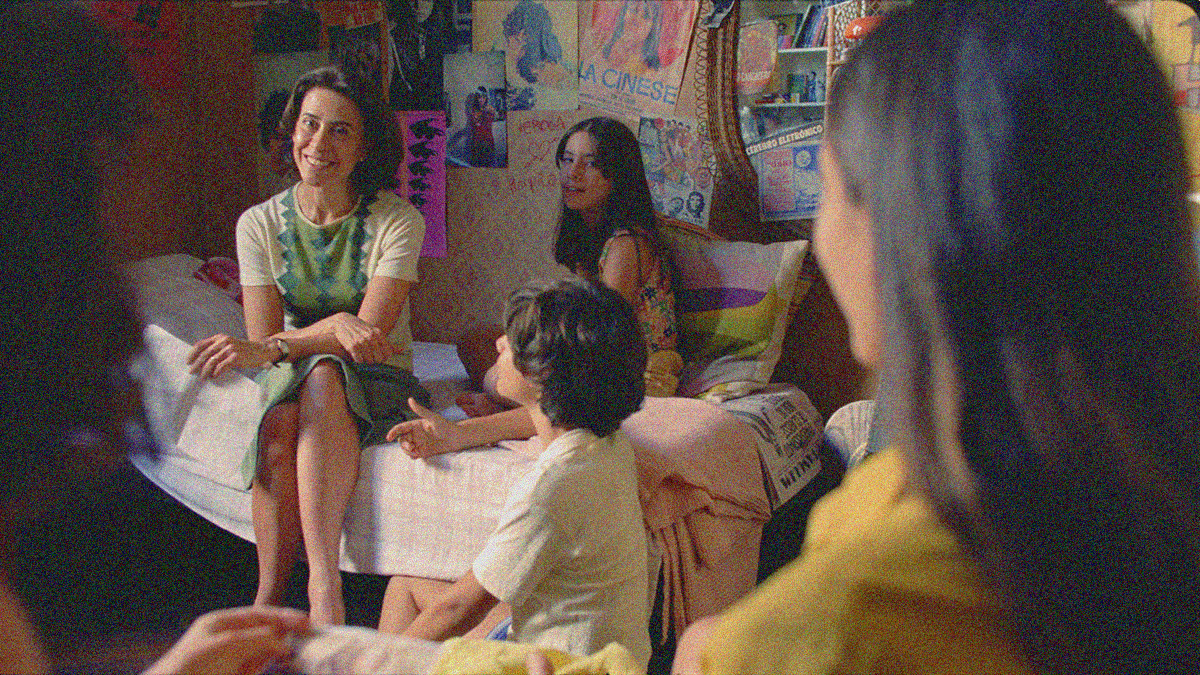
I’M STILL HERE
[Ainda Estou Aqui]
(limited release; Brazil’s International Oscar submission)
“And it all hinges on Torres being able to pull off the internal emotional struggle to keep moving forward no matter what she discovers. Eunice is a woman who cannot afford to break.”
– Full thoughts at jaredmobarak.com.
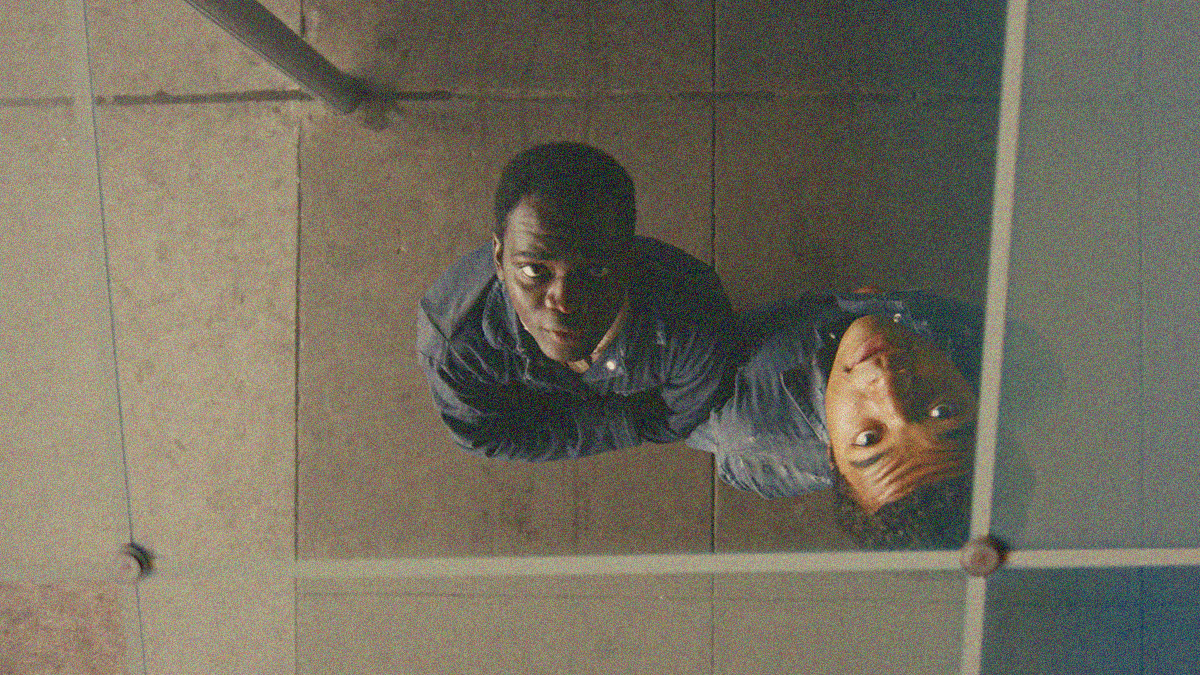
NICKEL BOYS
(limited release; eventually streaming on Prime)
“The film is a harrowing piece of American history and inspiring tale of mankind's perseverance to overcome overall, but its pieces are just as powerful—in some cases more.”
– Full thoughts at jaredmobarak.com.
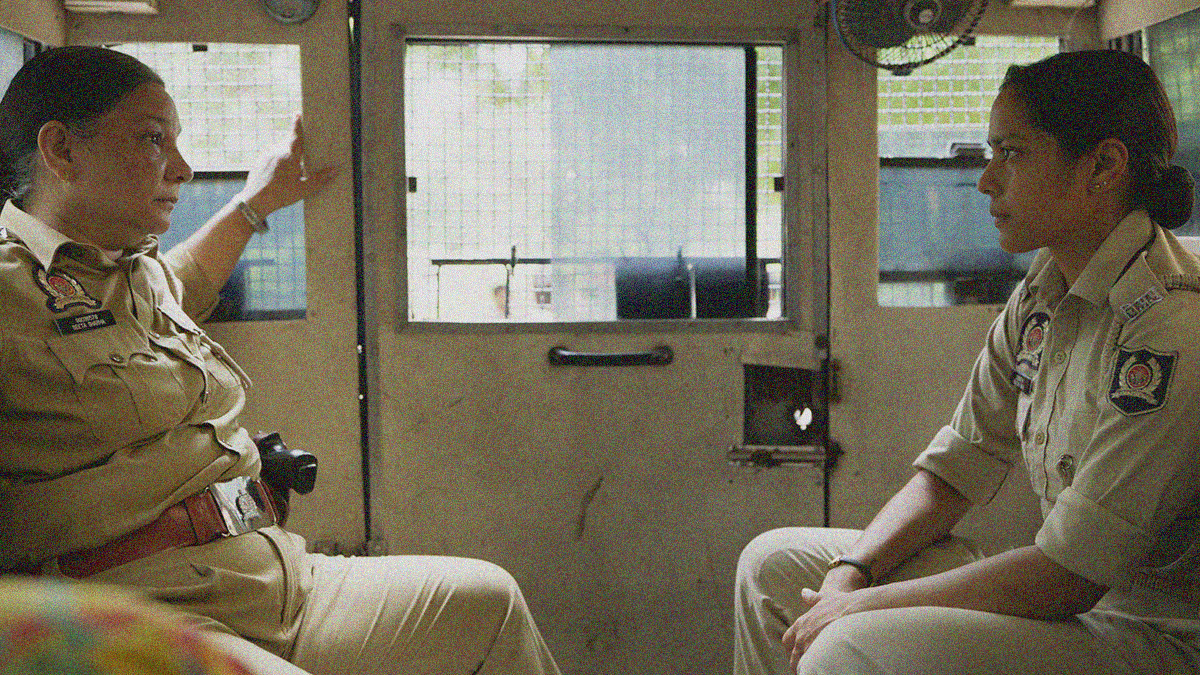
SANTOSH
(limited release; United Kingdom’s International Oscar submission)
Things aren't just as they appear in Sandhya Suri's Santosh. Yes, it's about misogyny in the sense that Santosh Saini (Shahana Goswami) is left with nothing as a widow of a "love marriage"—her in-laws won't take her because she "stole" him, her home is government property owned by the police force where he worked, and going back to her parents feels like a death sentence. But that's more about the why of joining the force herself (if she takes her husband's job, she gets his salary and widow benefits on top of a room wherever she's posted) than it is about what she will ultimately see and do as a result. India might be a patriarchal society prone to gender discrimination, but it can also be very racist.
Santosh learns this first-hand upon taking the initiative to find a Dalit man's fifteen-year-old daughter who's gone missing. The station itself doesn't want India's lowest caste to come to them so it can preserve its "sanitation," so they force the community to pay others to write their reports for them. While still in training, the newly minted Constable Saini hears his plight while at the cobbler and tells him to follow her so she can write the report herself and ensure an investigation can begin promptly. Her boss refuses. He sends him back to the cobbler with a laugh. Well, you can guess that the next time we see that father will be with tears in his eyes and the dead girl's body in his arms.
The fallout: a regime change. Not only is the old boss out, but his replacement is a woman. Geeta Sharma (Sunita Rajwar) is a seasoned veteran who takes zero guff from men at the station or on the street. She's someone who appears to be willing and able to stand-up for the marginalized and try to make a difference. Someone Santosh can look up to with respect as opposed to the bumbling cretins highlighted by a humorous YouTube video comparing Chinese law enforcement to India that she enjoys. Sharma listens to Santosh. She applauds her ambition (we're talking someone who had no interest in this career until it became her only option for survival actually doing the job while others look for a bribe and/or lunch) and takes her under wing once a suspect is found.
Because we so desperately want this case to be solved and for Santosh to be the catalyst, we quickly forget the obvious politics that Suri has so effectively presented us through the hierarchy of rank, wealth, and caste. With Sharma at her back, every clue Santosh uncovers is a miracle of true police work the others have either botched or ignored. We become so invested in catching Saleem (Arbaz Khan)—a Muslim and thus almost as denigrated by the Hindu population as the Dalit—that we don't stop to question the ease at which doors have suddenly been opened. And when they do get their man, all the praise and press becomes such a welcome achievement that we again stop short of asking, "Why?"
The tragedy is, of course, that Santosh does too. Here she is getting pats on the back by important people while Sharma takes her to dinner and lets her in on the interrogation. She's so enamored by the chance to do good that she even finds herself slipping into the very violence and hypocrisy that her attempts to give voice to the voiceless sought to combat. Power is a slippery slope. Santosh is given the keys to her future if she's willing to play along. If she's willing to keep quiet. The question then becomes whether she'll be able to acknowledge her complicity to the system that took her husband's life and let a young girl die. Are the spoils from embracing corruption worth losing her soul?
Suri weaves a fantastic script that truly does lull us into the copaganda inherent to a police officer being in the lead. She asks us to ignore all the question marks and bigotry by providing her heroine a stage to seek justice. We become as gung-ho as Santosh because we are accustomed to due process. Even if catching Saleem causes some lines to blur a bit, we can accept it since the truth will only be found after he's in handcuffs. Then the courts will decide ... right? Well, as we might discover soon, not all penal systems are equal. Some blur that line with purpose so a few more might get trampled en route to a conclusion that best suits all parties involved regardless of integrity. Perhaps Santosh was the pawn all along.
Goswami is great in the lead role because we always see her compassion—even when the darkness too many others trade in takes hold. Yes, she can get too fixated on her current objective to question it if everyone else is cheering her on, but she's doing it for a young Dalit girl who had no one in her corner. She's doing it because no one was willing to do it for her either. And, when she discovers her error, we know the horror is too much to bear. Because she's not like Sharma. Santosh isn't interested in politics or power. It's why Rajwar steals the show, leveraging what we see as maternalism and mentorship into pure exploitation for personal gain. It could become an ends-justifies-the-means event like Sharma tries to spin, but that "maybe" should never be enough to do what they do.
- 8/10
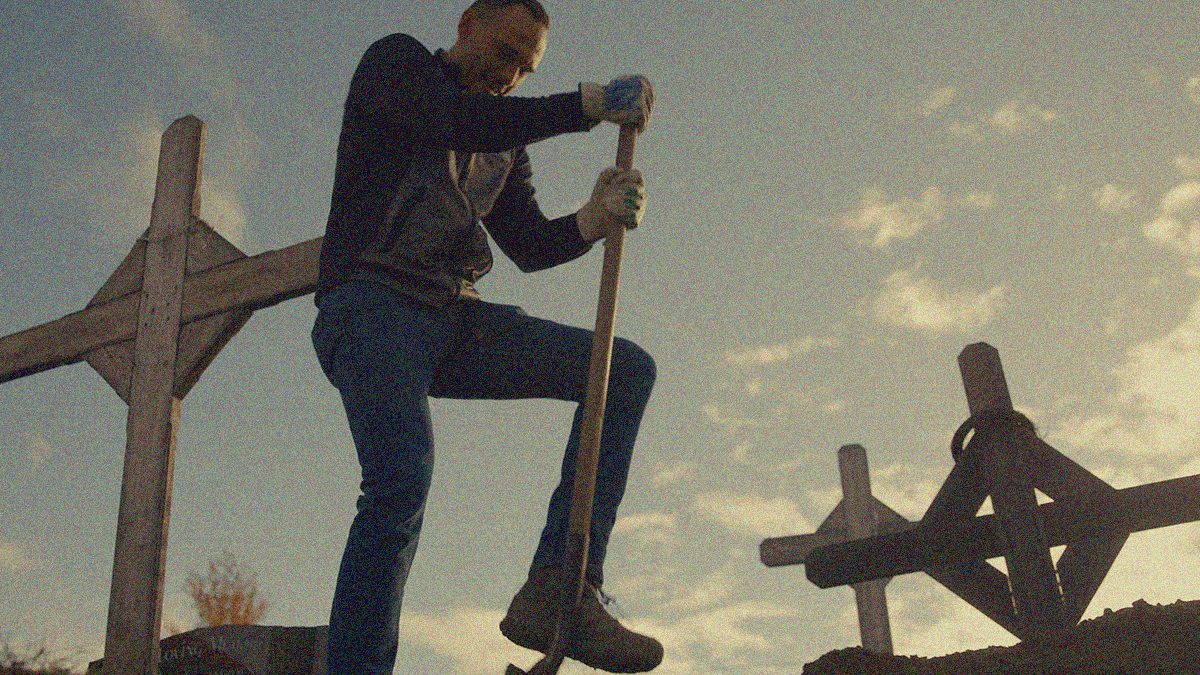
SUGARCANE
There’s a reason Julian Brave NoiseCat and Emily Kassie’s documentary into the investigation of abuse and murder at the Saint Joseph’s Mission residential school near Williams Lake, British Columbia begins with a content warning. Not just because of the physical evidence that proves the atrocities occurred, but also the first-hand accounts from survivors. It’s one thing to see Charlene Belleau and Whitney Spearing’s suspect board with strings and dates putting everything onto a timeline. It’s another to listen to Larry Emile break down remembering what he saw and even worse to watch Julian’s father Ed Archie Noisecat come to grips with the reality that he was never supposed to live.
I think that familial, personal connection allows Sugarcane to go to the dark places in which these types of journalistic exposés aren’t often able to go. You need a ton of trust to go on-the-record and revisit a nightmare that you will never be able to shake. Trust that it’s safe to talk about it at all considering many of the interviewees were beaten by their parents and punished by their community for telling their stories when it happened. Trust that the piece in which their testimony will live for perpetuity won’t turn out to be some exploitative hack job that makes matters worse. Trust that speaking it aloud might bring a modicum of peace after decades of heartache. This film is as much about reportage and a bid for reconciliation from the Catholic church as it is healing for a people.
You mustn’t look further than Julian to know the latter considering he feels the pain as deeply as his father and grandmother. That trauma is passed down generation to generation and leads to shame, alcoholism, and suicide. Rick Gilbert travels to the Vatican as part of this mission only to admit to the current Superior General of the group that ran Saint Joseph’s (The Missionary Oblates of Mary Immaculate) how the impact of residential schools has trickled down through four generations of his family. And how could it not when DNA tracking proves the rumors he’s been told since childhood—that his conception was the product of one of those priests raping his mother? It’s not just about the bodies lost. It’s about the lives that must bear the horror of their own existence.
You must give all the survivors and witnesses love and support for speaking their truths so that the world must listen. Sure, there will always be those who refuse to believe like the writers of racist bile Williams Lake’s chief Willie Sellars receives online, but the majority of us do. The facts are indisputable. They must be for Justin Trudeau to finally travel to the reservation and admit the nation’s complicity or for the Pope to vocalize an apology for what transpired in his church’s name. That doesn’t mean anyone should simply forgive and forget, though. As Rick tells Superior General Louis Lougen, it’s the Bible that states words are just a first step. The guilty must also atone. Restitution must be paid and justice found.
The hope is that Sugarcane helps ensure this tragedy won’t be swept under the rug a second time. But, even if our increasingly hateful world does avoid learning from the past, at least the men, women, mothers, fathers, sons, and daughters have been able to let it out. Maybe releasing the secrets that have always stood in the way of their personal bonds will help strengthen their love so they might be able to forgive each other for what this trauma has made them do. It’s a lot to unpack—especially considering the point of these schools was to strip indigenous people of their culture. To homogenize and assimilate those they allowed to live. Those like Julian and Willie (and those younger) must now reconcile nation against land in language, history, and identity. The damage runs deep.
- 8/10
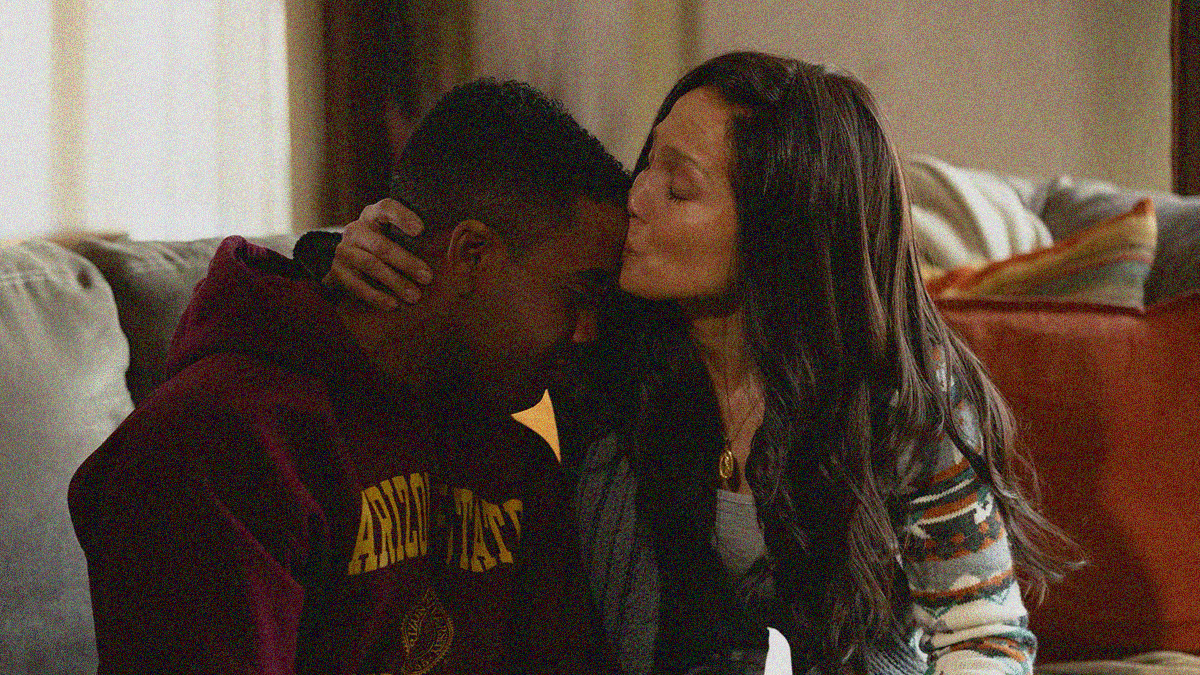
UNSTOPPABLE
(streaming on Prime)
“The first half is a bit rough—riddled with clichés [and] ham-fisted dialogue. The emotion is what gets us through [before the third act provides a more singular purpose] and we have Lopez to thank for it.”
– Full thoughts at jaredmobarak.com.
New Releases This Week:
(Review links where applicable)
Opening Buffalo-area theaters 1/17/25 -
AUTUMN AND THE BLACK JAGUAR at Regal Elmwood & Transit
KARSANG at Regal Elmwood
ONE OF THEM DAYS at Dipson Capitol; AMC Maple Ridge & Market Arcade; Regal Elmwood, Transit, Galleria & Quaker
THE ROOM NEXT DOOR at North Park; Dipson Amherst; Regal Elmwood, Transit, Galleria & Quaker
Quick Hit thoughts at jaredmobarak.com.
SANKRATHIKI VASTHUNAM at Regal Elmwood
SING SING (re-release) at Regal Transit, Galleria & Quaker
“The film is never better than when [Maclin and Domingo] are together because you really get a sense of how fine the line separating us is. No matter our pasts or actions, a shared humanity remains.” – Full thoughts at HHYS.
WISH YOU WERE HERE at Dipson Flix & Capitol
WOLF MAN at Dipson Flix & Capitol; AMC Maple Ridge & Market Arcade; Regal Elmwood, Transit, Galleria & Quaker
Streaming from 1/17/25 -
A DIFFERENT MAN – Max on 1/17
“A Different Man proves a relevant commentary on our world's penchant to "other" those outside a given norm, but also an increasingly zany satire on our ability to "other" ourselves.” – Full thoughts at HHYS.
BACK IN ACTION – Netflix on 1/17
Now on VOD/Digital HD -
IN THE SHADOW OF BEIRUT (1/14)
“By following four families during the course of five years, the documentary proves a damning indictment on living conditions made increasingly worse with every new law change.” – Full thoughts at HHYS.
KRAVEN: THE HUNTER (1/14)
MAN WITH NO PAST (1/14)
QUEER (1/14)
TRIGGER HAPPY (1/14)
ALARUM (1/17)
BIRDEATER (1/17)
ERNEST COLE: LOST & FOUND (1/17)








